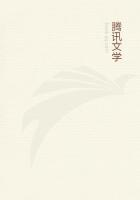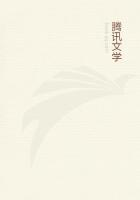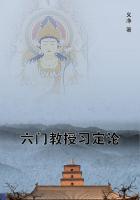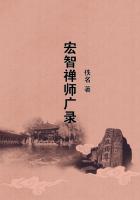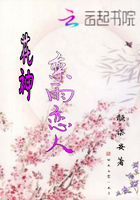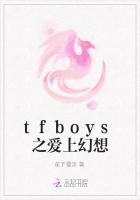THE QUEST OF THE PHILOSOPHER'S STONE
THE need of unity is a primary need of human thought.
Behind the varied multiplicity of the world of phenomena, primitive man, as I have indicated on a preceding excursion, begins to seek, more or less consciously, for that Unity which alone is Real. And this statement not only applies to the first dim gropings of the primitive human mind, but sums up almost the whole of science and philosophy; for almost all science and philosophy is explicitly or implicitly a search for unity, for one law or one love, one matter or one spirit.
That which is the aim of the search may, indeed, be expressed under widely different terms, but it is always conceived to be the unity in which all multiplicity is resolved, whether it be thought of as one final law of necessity, which all things obey, and of which all the various other "laws of nature" are so many special and limited applications;or as one final love for which all things are created, and to which all things aspire; as one matter of which all bodies are but varying forms; or as one spirit, which is the life of all things, and of which all things are so many manifestations.
Every scientist and philosopher is a merchant seeking for goodly pearls, willing to sell every pearl that he has, if he may secure the One Pearl beyond price, because he knows that in that One Pearl all others are included.
This search for unity in multiplicity, however, is not confined to the acknowledged scientist and philosopher.
More or less unconsciously everyone is engaged in this quest.
Harmony and unity are the very fundamental laws of the human mind itself, and, in a sense, all mental activity is the endeavour to bring about a state of harmony and unity in the mind.
No two ideas that are contradictory of one another, and are perceived to be of this nature, can permanently exist in any sane man's mind.
It is true that many people try to keep certain portions of their mental life in water-tight compartments; thus some try to keep their religious convictions and their business ideas, or their religious faith and their scientific knowledge, separate from another one--and, it seems, often succeed remarkably well in so doing. But, ultimately, the arbitrary mental walls they have erected will break down by the force of their own ideas.
Contradictory ideas from different compartments will then present themselves to consciousness at the same moment of time, and the result of the perception of their contradictory nature will be mental anguish and turmoil, persisting until one set of ideas is conquered and overcome by the other, and harmony and unity are restored.
It is true of all of us, then, that we seek for Unity--unity in mind and life. Some seek it in science and a life of knowledge; some seek it in religion and a life of faith;some seek it in human love and find it in the life of service to their fellows; some seek it in pleasure and the gratification of the senses' demands; some seek it in the harmonious development of all the facets of their being. Many the methods, right and wrong; many the terms under which the One is conceived, true and false--in a sense, to use the phraseology of a bygone system of philosophy, we are all, consciously or unconsciously, following paths that lead thither or paths that lead away, seekers in the quest of the Philosopher's Stone.
Let us, in these excursions in the byways of thought, consider for a while the form that the quest of fundamental unity took in the hands of those curious mediaeval philosophers, half mystics, half experimentalists in natural things--that are known by the name of "alchemists."The common opinion concerning alchemy is that it was a pseudo-science or pseudo-art flourishing during the Dark Ages, and having for its aim the conversion of common metals into silver and gold by means of a most marvellous and wholly fabulous agent called the Philosopher's Stone, that its devotees were half knaves, half fools, whose views concerning Nature were entirely erroneous, and whose objects were entirely mercenary.
This opinion is not absolutely destitute of truth; as a science alchemy involved many fantastic errors; and in the course of its history it certainly proved attractive to both knaves and fools. But if this opinion involves some element of truth, it involves a far greater proportion of error.
Amongst the alchemists are numbered some of the greatest intellects of the Middle Ages--ROGER BACON (_c_. 1214-1294), for example, who might almost be called the father of experimental science.
And whether or not the desire for material wealth was a secondary object, the true aim of the genuine alchemist was a much nobler one than this as one of them exclaims with true scientific fervour:
"Would to God . . . all men might become adepts in our Art--for then gold, the great idol of mankind, would lose its value, and we should prize it only for its scientific teaching."[1] Moreover, recent developments in physical and chemical science seem to indicate that the alchemists were not so utterly wrong in their concept of Nature as has formerly been supposed--that, whilst they certainly erred in both their methods and their interpretations of individual phenomena, they did intuitively grasp certain fundamental facts concerning the universe of the very greatest importance.
[1] EIRENAEUS PHILALETHES: _An Open Entrance to the Closed Palace of the King_. (See _The Hermetic Museum, Restored and Enlarged_, ed.
by A. E. WAITE, 1893, vol. ii. p. 178.)Suppose, however, that the theories of the alchemists are entirely erroneous from beginning to end, and are nowhere relieved by the merest glimmer of truth. Still they were believed to be true, and this belief had an important influence upon human thought.
Many men of science have, I am afraid, been too prone to regard the mystical views of the alchemists as unintelligible; but, whatever their theories may be to us, these theories were certainly very real to them:

